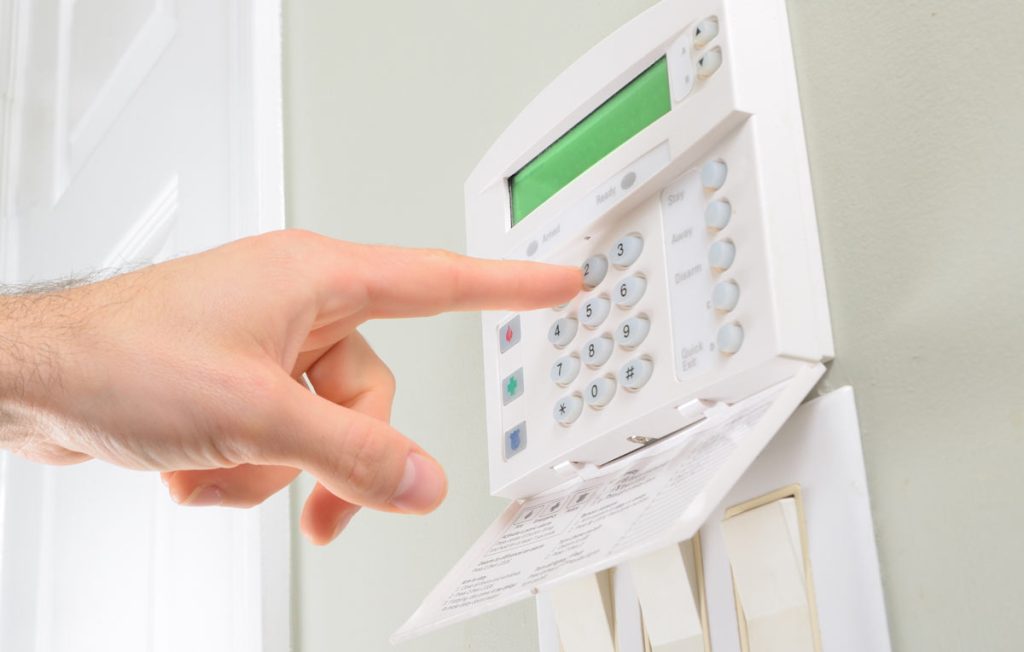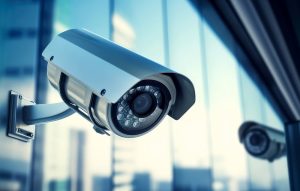Choosing the right security system for your home or business is a crucial decision that impacts your peace of mind, safety, and financial investment. Two primary options dominate the market: wireless and wired security systems. Each has its advantages and drawbacks, and the best choice depends on your specific needs, property type, and budget. In this blog post, we’ll explore the key differences between wireless and wired security systems, helping you make an informed decision on which is right for you.
1. Understanding the Basics
Before diving into the pros and cons of each system, it’s essential to understand what we mean by wireless and wired security systems.
- Wired Security Systems: As the name suggests, these systems rely on physical cables to connect various components, such as cameras, sensors, and control panels. They are hardwired into your property’s electrical and communication infrastructure.
- Wireless Security Systems: These systems use wireless communication methods, typically Wi-Fi or radio signals, to connect different components. This eliminates the need for extensive cabling and allows for greater flexibility in placement and installation.
2. Installation Process
The installation process is one of the most significant differences between wired and wireless systems.
- Wired Systems: Installing a wired security system is a more complex and time-consuming process. It requires running cables through walls, ceilings, and floors, which can be disruptive, particularly in an existing building. Professional installation is often necessary, adding to the overall cost. However, the result is a robust, reliable connection that isn’t susceptible to interference.
- Wireless Systems: Wireless systems are much easier to install. Without the need for cabling, components can be placed almost anywhere, and installation is usually quick and non-invasive. Many wireless systems are DIY-friendly, though professional installation can still be beneficial for optimal setup and security. This ease of installation makes wireless systems an attractive option for renters or those looking for a quick and flexible solution.
3. Reliability and Performance
When it comes to reliability and performance, both wired and wireless systems have their strengths and weaknesses.
- Wired Systems: Wired systems are known for their reliability. Since they are physically connected, they are less prone to signal interference or outages caused by network issues. They are also immune to hacking attempts aimed at disrupting wireless signals. However, wired systems can be vulnerable to physical damage, such as cables being cut during a break-in.
- Wireless Systems: Wireless systems, while more convenient, can be susceptible to interference from other wireless devices, such as routers, microwaves, and other electronics. Signal strength can also vary depending on the distance between components and obstacles like walls or furniture. However, advancements in technology have significantly improved the reliability of wireless systems, and many now offer robust encryption to protect against hacking. Battery-powered wireless systems also continue to function during power outages, provided the batteries are maintained.
4. Flexibility and Scalability
Flexibility and scalability are critical factors, especially for businesses or homeowners who may need to expand their security system in the future.
- Wired Systems: Expanding a wired system typically involves additional cabling and possibly drilling more holes, making it a less flexible option. However, wired systems are often more suitable for large properties or complex setups, where a stable, interference-free connection is paramount.
- Wireless Systems: Wireless systems are highly flexible and scalable. Adding new sensors, cameras, or other components is generally straightforward and doesn’t require extensive work. This makes wireless systems an ideal choice for growing businesses or homeowners who may want to upgrade their security over time.
5. Security and Privacy
Both wired and wireless systems offer robust security features, but there are differences to consider in terms of privacy and vulnerability.
- Wired Systems: Wired systems are inherently secure because they are not connected to the internet. This makes them immune to certain types of cyber-attacks that can affect wireless systems. However, if someone gains physical access to the system, they could potentially disable it by cutting the wires.
- Wireless Systems: Wireless systems are connected to the internet, which allows for remote access and monitoring. However, this connectivity also introduces potential vulnerabilities, such as hacking or data breaches. Reputable wireless systems use advanced encryption protocols to protect against these threats, but it’s essential to choose a system with strong security features and keep your software updated.
6. Cost Considerations
Cost is often a significant factor when choosing a security system. The overall cost includes not just the initial purchase price, but also installation, maintenance, and potential upgrades.
- Wired Systems: Wired systems generally have a higher upfront cost due to the need for professional installation. However, they are often considered a long-term investment because of their reliability and durability. Maintenance costs can be lower, as there are no batteries to replace, but repairs can be more complex and costly if there is a problem with the wiring.
- Wireless Systems: Wireless systems typically have lower upfront costs, especially if you opt for a DIY installation. However, ongoing costs can include battery replacements and potential upgrades to keep up with advancing technology. Wireless systems may also require a subscription for cloud storage or professional monitoring services.
7. Remote Access and Monitoring
Remote access and monitoring capabilities are increasingly important for modern security systems, especially for users who want to keep an eye on their property while away.
- Wired Systems: While traditional wired systems might lack built-in remote access, modern wired systems often integrate with smart home technology, allowing for remote control and monitoring through mobile apps. However, this usually requires additional hardware and configuration.
- Wireless Systems: Wireless systems excel in remote access. Most come with intuitive apps that allow you to monitor your property, receive alerts, and control your system from anywhere with an internet connection. This feature is particularly appealing to tech-savvy users and those who travel frequently.
8. Aesthetics and Design
The design and aesthetics of your security system can influence your decision, particularly for residential properties.
- Wired Systems: Wired systems require visible cables, which can be unsightly unless carefully concealed. This can be a disadvantage if you are concerned about the appearance of your home or office. However, professional installers can often minimise the visual impact with strategic cable management.
- Wireless Systems: Wireless systems are generally more aesthetically pleasing, as there are no cables to hide. Components are often sleek and modern, designed to blend in with home décor. This makes wireless systems a popular choice for residential settings where appearance matters.
9. Power Supply and Backup
The power supply is a crucial aspect of any security system, as outages can leave your property vulnerable.
- Wired Systems: Wired systems are connected to your property’s power supply, ensuring consistent operation. However, if there is a power outage, the system will go down unless it has a backup power source like a UPS (Uninterruptible Power Supply). This can be a limitation in areas prone to power cuts.
- Wireless Systems: Wireless systems are often battery-powered, meaning they continue to operate during power outages. Some systems use rechargeable batteries with long life spans, while others require regular battery changes. The ability to function without relying on the main power supply is a significant advantage for wireless systems.
10. Maintenance and Longevity
Maintenance and system longevity are important factors to consider when choosing between wired and wireless security systems.
- Wired Systems: Wired systems tend to require less frequent maintenance once installed, aside from occasional checks to ensure all connections are secure. They are often more durable and can last for many years without needing significant upgrades.
- Wireless Systems: Wireless systems require more regular maintenance, particularly concerning battery replacement and software updates. As technology advances, you might need to upgrade your system more frequently to take advantage of new features or improved security protocols.
Conclusion: Which Is Right for You?
Choosing between a wired and wireless security system depends on your specific needs, preferences, and budget.
- If you prioritise reliability, security, and are planning a long-term investment, a wired system may be the best choice. It’s particularly suited for larger properties or businesses where a stable, interference-free connection is critical.
- On the other hand, if you value flexibility, ease of installation, and modern features like remote access, a wireless system could be the ideal solution. It’s perfect for renters, smaller properties, or anyone looking for a quick, scalable, and user-friendly security setup.
Ultimately, both systems have their merits, and the decision should be based on a thorough assessment of your property, lifestyle, and security goals. If you’re still unsure, consulting with a security expert can provide personalised advice to help you make the best choice for your situation.






